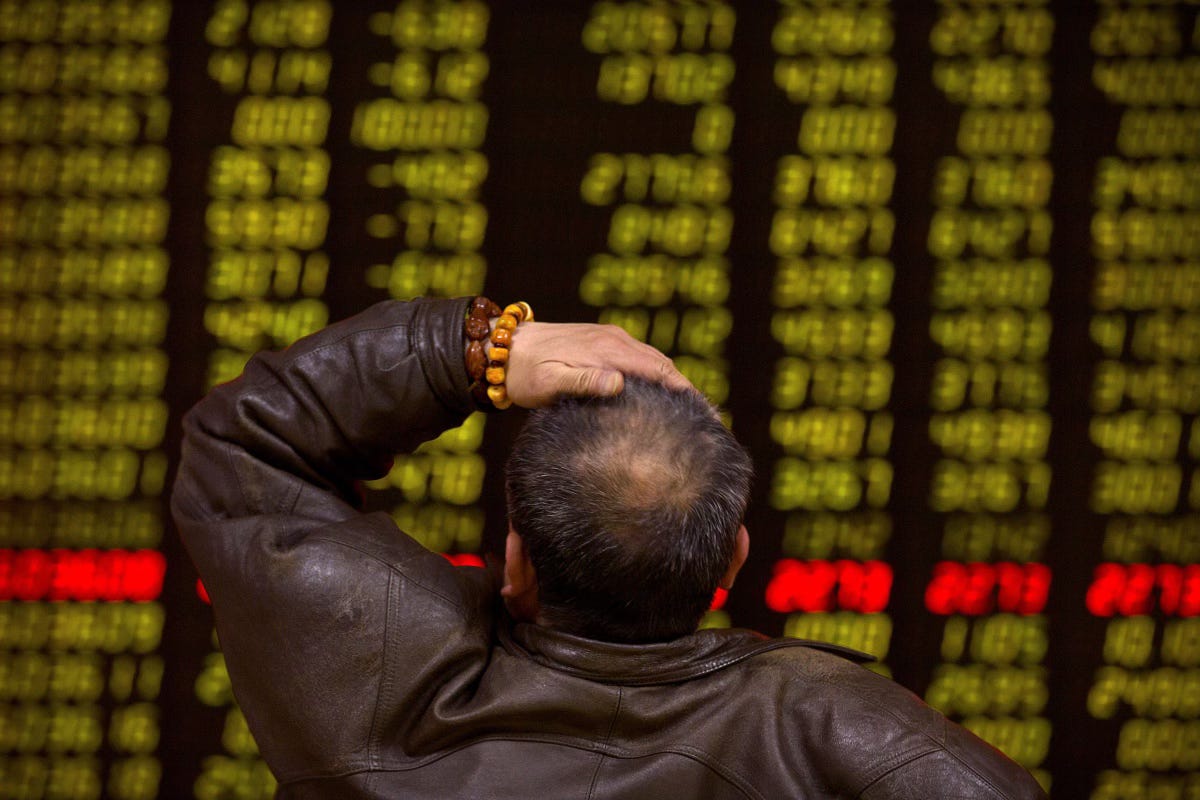
While economists in the UK sound the alarm bells over domestic market chaos, further afield, China is contending with a bond crisis of its own.
Yields on Chinese government bonds have plunged to all-time-lows, stoking fears that the world’s second largest economy could be heading for a downturn that takes years to reverse.
Decades even, according to the gloomiest of analysts who are drawing comparisons with the steep economic slowdown Japan experienced after its stock market and real estate bubbles burst in the 1990s. A deflationary era that it is only now emerging from.
China’s 10-year bond yield has dipped below 1.6%, hitting a record low, while its 30-year yield has dropped below the Japanese Government Bond (JGB) yield for the first time ever.
As for what’s driving these worrying trends, Beijing is contending with the opposite problem to most nations around the world: falling prices.
New figures out today from the National Bureau of Statistics have done little to quell fears that deflation is taking hold in China. Consumer prices crept up 0.1 per cent in December compared to a year before, the weakest pace since April and the fourth consecutive month that price increases have slowed. Meanwhile, factory-gate prices have remained deflationary for 27 straight months.
Factors contributing to China’s deflationary spiral are remarkably similar to those that led to Japan’s “lost decades”.
Beijing is struggling to recover from a property sector bust all the while dealing with lacklustre domestic demand, high government and private sector debt and a brewing demographic crisis.
The Chinese government has made boosting domestic consumer spending a top priority for 2025, and it has been cranking up stimulus to boost the economy, agreeing on a record $411 billion worth of special treasury bond issuance.
But today’s CPI data suggests this intervention is yet to have any major effect. With no end in sight to China’s housing market downturn and job insecurity widespread, the domestic population is still reluctant to spend. In fact, cautious consumers are increasingly opting to rent even items such as cameras to handbags, instead of buying them.
Beijing’s economic woes could soon be exacerbated - by a ramped up US-China trade war if President elect Trump follows through on his tariff threats.
And if UBS economists’ predictions stand correct, the Chinese economy - one that has acted as a global growth engine for the last 20 years - will grow 4.0 per cent in 2025 compared with 4.9 per cent last year.
To a UK audience, that figure might sound decent. But for China, that would - bar the pandemic-ravaged years of 2020 and 2021 - represent the lowest growth since it emerged as a global economic force in the 1990s.
Speaking of the 1990s, that it has taken three decades for Japanese property and equity prices to recover their pre-crash peaks following the country's real estate bust will offer little comfort to Beijing.
Then again, if China wants to avoid a "Japanification" of its economy, there may be some valuable lessons to learn from the former poster child for deflation.
According to economists at Morgan Stanley, one fatal error made in 1990s Japan was for companies to respond to the low-price environment by limiting wage growth. This only helped a deflationary spiral take hold.
As for some further advice for Beijing, Robin Harding, the FT's Asia editor, makes the point that, while continuing to shovel money towards the manufacturing sector will keep GDP growth on track, deflation won’t be tackled by adding more and more supply while doing little to encourage demand.
Instead, he argues, “The priorities should be to clear up the overhang of unsold property; to support local government and household budgets; and to cease heavy-handed state interventions so that private companies have the confidence to invest.”
Take heed.
Caitlin Allen
Deputy Editor
ON REACTION TODAY
Maggie Pagano
Reeves missing in action: how long can she last as Chancellor?
Gerald Warner
Trump is right to be concerned about Greenland
ALSO KNOW
Cease and desist, Starmer! - Liz Truss has sent a legal letter to Keir Starmer demanding that he stop making “false and defamatory” claims that she crashed the economy. The former prime minister’s six-page “cease and desist” letter accused Starmer of harming her reputation and contributing to her losing her South West Norfolk seat in the general election.
Doping controversy - The US government is withholding funding for the World Anti-Doping Agency in protest at the agency’s decision to allow 23 Chinese swimmers to compete at the Tokyo Olympics in 2021, despite testing positive for a banned substance months earlier.
Foiled attack in Chad - The government of Chad has said it has control over the presidential palace, following an “attempt at destabilisation” in the military-ruled central African country. At least 18 assailants and one presidential guard died after attackers stormed the palace in the Chadian capital of N’Djamena overnight while President Mahamat Déby Itno was inside.
Top Iranian general contradicts Tehran’s official line - Brig. Gen. Behrouz Esbati, Iran’s top-ranking general in Syria, has given a candid speech at a mosque in Tehran, admitting that the country was “defeated very badly” and dealt “a very big blow” when Bashar al-Assad’s regime collapsed, reports the New York Times.




